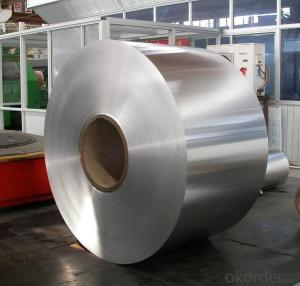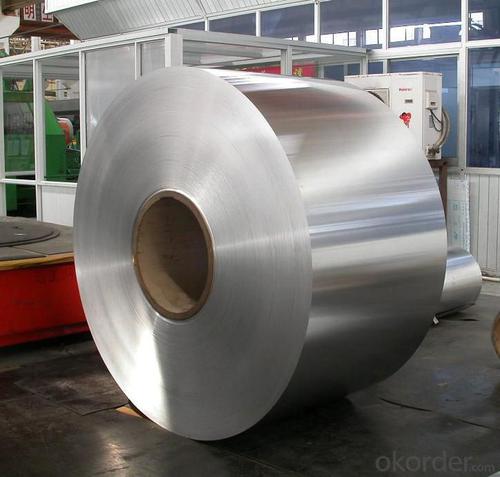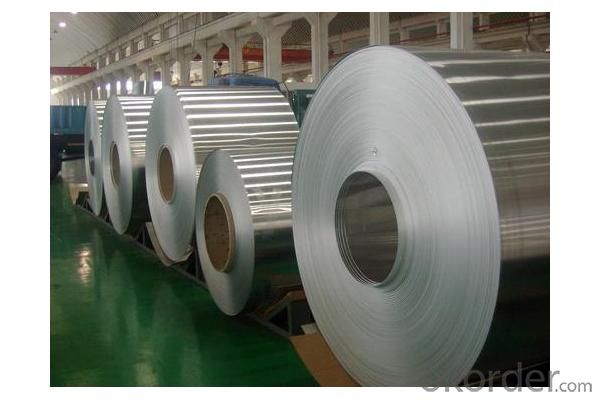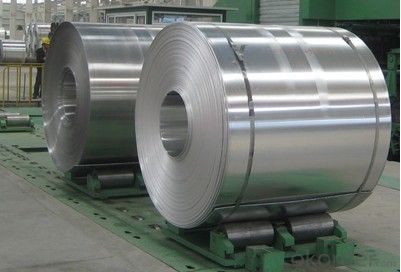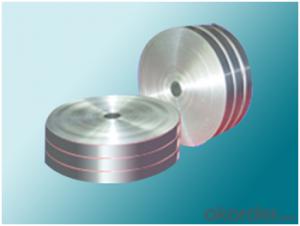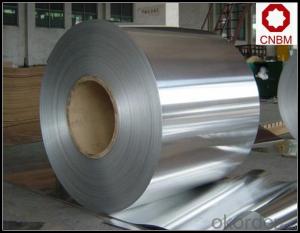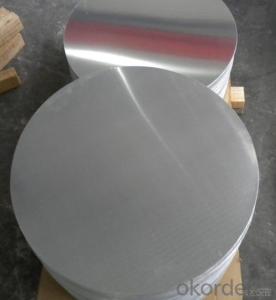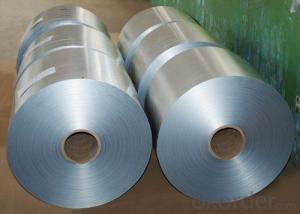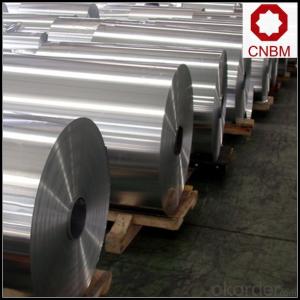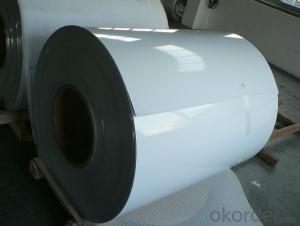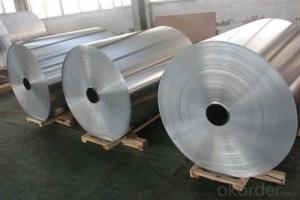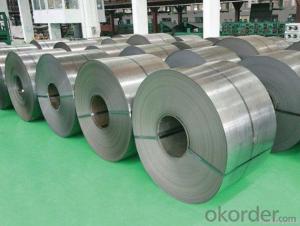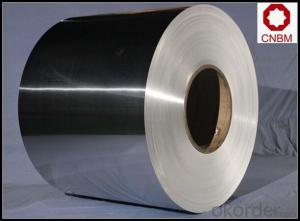Aluminum Coils Inc Manta Aluminum Coil 1050 for Channel Letter Made in China
- Loading Port:
- Tianjin
- Payment Terms:
- TT OR LC
- Min Order Qty:
- 100 m.t
- Supply Capability:
- 10000 m.t/month
OKorder Service Pledge
OKorder Financial Service
You Might Also Like
Specification
Aluminum coil production description
aluminum coil 1050 for channel letter
PRODUCT | ALLOY | TEMPER | THICKNESS | WIDTH | I.D(mm) | APPLICATION |
Aluminum Coil/ Strip | 1050 1060 1100 1200 | O H12 H14 H16 H18 H22 H24 | 0.1-10mm | 10-2540 mm | 75,150 200,300 400,505 (as customers's request) | construction, decoration, automobile, electronic, machinery, boat construction, aeronatics&astronautics, cookware,packing etc. |
Aluminum coil chemistry composition
1050 Chemistry Composition | |||||||||
Element | Si | Fe | Cu | Mn | Mg | Cr | Ti | Zn | Al |
Standard Value | 0.25 | 0.40 | 0.05 | 0.05 | 0.05 | --- | 0.03 | 0.05 | 99.5 |
We have strict and professional procedures of production:
(1)Before Producing :
a. Assurance of compliance the standard and material
b. According to customer's order;
c. Making production plan according to customer's order ;
d. Starting producing after receiving the payment from customer
(2)Finished production :
a. Chemical test and Machanical test by our quality department,
b. Visual examination
c. Thickness measurment (Continous Ultrasonic)
d. Lenght dimension control.
e. Flatness,Straightness,Visual & Dimention check of edge
f. Weight control
g. Marking
Applications
Be Used in construction and decoration, hardware and electric appliances manufacture, automobile
manufacture and other industrial and civil purposes, such as electronic capacitor, composite cooker,
rice cooker, refrigerator, computer casting,tele communication equipment, lamp shade, airconditioner, cosmetics cover and box,airconditioner radiator,inner container of disinfecting cabinet,ceiling board, automobile motherboard, cover board and top board, etc.
Our services
Main Services:
> Precision aluminum plate
> Casting products
> Forging products
Special Services:
> Alloy selection
> Aluminum machining techniques
> Hot working
> Surface treatment
Our Promise
---High quality stainless steel with reasonable price.
---Wide excellent experiences with after-sale service.
---Every process will be checked by responsible QC.
---Professional packing teams which keep every packing safely.
---Trial order can be done in one week.
---Samples can be provided as your requirements.
FAQ
Q: Do you have the CE, TUV, UL Certification?
A: We’ve already passed all the tests, and any certificate is available.
Q: Have you ever sold your products to companies in my country?
A: Of course, we have customers in all general PV markets, but I think we should expand our market share along with the market growth.
Q: How do you pack your products?
A: We have rich experience on how to pack to make sure the safety on shipment when it arrives at the destination.
Q: Can you do OEM for us?
A: Yes, we can.
Q: Can we visit your factory?
A: Surely, I will arrange the trip basing on your business schedule.
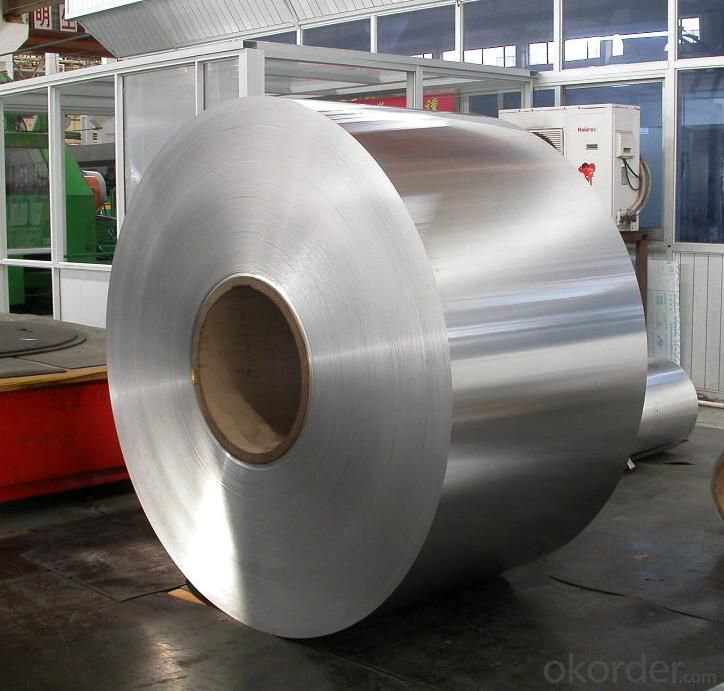
- Q: Are the currently rentable U-Haul trailers or trucks made out of aluminum or fiberglass? Thanks!
- most of them are aluminum
- Q: What are the different joining methods for aluminum coils?
- There are several different joining methods for aluminum coils, depending on the specific application and desired strength of the bond. Some of the common joining methods for aluminum coils include: 1. Welding: Aluminum can be welded using different techniques such as TIG (Tungsten Inert Gas) welding, MIG (Metal Inert Gas) welding, or laser welding. Welding provides a strong and durable bond between the coils, ensuring structural integrity. 2. Brazing: Brazing involves melting a filler material, usually a copper-based alloy, to join two aluminum coils. This method is suitable for joining thin aluminum coils and provides a strong and leak-proof bond. 3. Adhesive bonding: Adhesive bonding is a non-destructive joining method that involves using a high-strength adhesive to bond the aluminum coils together. This method is often used when aesthetics and surface finish are crucial, as it does not require any visible welding or brazing marks. 4. Mechanical joining: Mechanical joining methods include techniques like riveting, clinching, and using fasteners like screws or bolts. These methods provide a reliable and easily reversible bond, making them suitable for applications where disassembly may be required. 5. Roll bonding: Roll bonding is a process where two or more aluminum coils are passed through a rolling mill under high pressure, resulting in the creation of a single composite coil. This method is commonly used for joining dissimilar metals or creating laminated structures with different alloy combinations. Each joining method has its advantages and limitations, and the choice of method depends on factors such as the desired strength, cost, production volume, and specific application requirements. It is important to consider these factors carefully to ensure the most suitable joining method is selected for aluminum coil applications.
- Q: What are the typical mechanical properties of aluminum coils?
- The typical mechanical properties of aluminum coils include high strength, good formability, excellent corrosion resistance, low density, and high thermal conductivity. Additionally, aluminum coils often have good electrical conductivity and are easily machinable.
- Q: What are the standard widths of aluminum coils?
- The standard widths of aluminum coils vary depending on the industry and application, but common widths range from 12 inches to 60 inches.
- Q: This question asks for a comparison of the benefits and drawbacks of utilizing aluminum coil in insulation applications.
- <p>Aluminum coil has several advantages for insulation, including its high thermal conductivity, which allows for efficient heat transfer, and its lightweight nature, making it easy to handle and install. It also offers good resistance to corrosion and is cost-effective compared to other materials. However, it has some disadvantages such as low strength, which may require additional support structures, and it can be prone to denting or damage if not handled carefully. Additionally, aluminum's high conductivity can lead to increased heat loss if not properly insulated, and it may require more frequent maintenance due to its susceptibility to environmental factors.</p>
- Q: Are aluminum coils suitable for high-gloss applications?
- Aluminum coils are indeed suitable for high-gloss applications. Aluminum has excellent reflective properties and can achieve a high level of shine and gloss when properly treated and finished. The metal's smooth surface and reflective nature allow it to enhance the appearance of high-gloss finishes, making it an ideal choice for applications where a shiny and polished look is desired. In addition to its aesthetic benefits, aluminum also offers several practical advantages for high-gloss applications. It is lightweight, durable, and resistant to corrosion, making it a long-lasting and low-maintenance option. Aluminum coils are also highly malleable, allowing them to be easily formed into various shapes and sizes, which is crucial for achieving the desired high-gloss design. Furthermore, aluminum coils can be coated with a variety of finishes, such as anodized coatings or high-quality paint systems, to enhance their durability and glossiness. These coatings provide an additional layer of protection against scratches, fading, and other forms of wear and tear, ensuring that the high-gloss appearance is maintained over time. In summary, aluminum coils are well-suited for high-gloss applications due to their reflective properties, versatility, and durability. When properly treated and finished, aluminum can provide a stunning and long-lasting glossy finish, making it a popular choice for various industries, including automotive, architecture, and interior design.
- Q: Im trying to make a aluminum ring. I want it to be rock hard. PLZZAnswers that work get best answer
- Dont use foil from the kitchen. Pure and simple. Get someone to machine you a piece of solid aluminum. You can't change the metallurgical properties of metal.
- Q: Can aluminum coils be used in coil coating processes?
- Coil coating processes can indeed utilize aluminum coils. In this automated and continuous process, a protective or decorative coating is applied to a metal coil, typically steel or aluminum. The utilization of aluminum coils in this process is widespread due to their exceptional corrosion resistance, lightweight properties, and ease of shaping. Prior to the actual coating application, these aluminum coils undergo several pre-treatment processes, which include cleaning, chemical treatment, and primer application. Once prepared, a diverse range of materials, such as paints, lacquers, and polymers, are applied to the coils to enhance their appearance, durability, and performance. The coil coating process is highly efficient and consistent, making it an optimal choice for various industries, including construction, transportation, and appliances.
- Q: What are the different types of aluminum coils?
- Aluminum coils come in a variety of types, each with its own unique properties and uses. Let's take a look at some common examples: 1. Pure Aluminum Coils: Made from pure aluminum, these coils find applications in packaging, construction, and automotive industries. 2. Textured Aluminum Coils: These coils have a surface with texture or patterns, adding aesthetic appeal and providing grip or anti-slip properties. They are commonly used in architectural designs, signage, and decorative applications. 3. Coated Aluminum Coils: These coils have a protective coating applied to the surface, offering enhanced durability, weather resistance, and aesthetic customization. They are often used in building facades, roofing, and cladding systems. 4. Anodized Aluminum Coils: Through an electrochemical process called anodization, a layer of oxide is formed on the surface of the aluminum, making it more resistant to corrosion and wear. Anodized aluminum coils are commonly used in architectural applications, electronics, and automotive parts. 5. Pre-painted Aluminum Coils: With a layer of paint applied to the surface, these coils provide protection against weathering and add color aesthetics. They are frequently used in the construction industry for roofing, siding, and insulation purposes. 6. Stucco Patterned Aluminum Coils: These coils have a raised pattern resembling stucco, adding texture and strength to the aluminum. They are commonly used in refrigerators, air conditioners, and other appliances. 7. Clad Aluminum Coils: These coils consist of two or more layers of aluminum bonded together, offering enhanced strength, durability, or specific properties. They find applications in industries such as aerospace, defense, and transportation. In summary, the choice of aluminum coil type depends on specific application requirements, including appearance, corrosion resistance, durability, and mechanical properties.
- Q: I am concerned about the environment so I collect empty aluminum cans off the street when I walk my dog. Right now I have 3 large garbage bags full of crushed aluminum can. The problem is... some of the cans have dirt on and in them. Some of thoroughly flattened ones may even have small pebbles embedded in them. Will these be accepted at the recycling facility? I'm guessing it doesn't matter because when they melt them any organic materials will burn away and any dirt particles or small pebbles will be separated from the molten aluminum. What do you think?
- yes they won't care about dirt
Send your message to us
Aluminum Coils Inc Manta Aluminum Coil 1050 for Channel Letter Made in China
- Loading Port:
- Tianjin
- Payment Terms:
- TT OR LC
- Min Order Qty:
- 100 m.t
- Supply Capability:
- 10000 m.t/month
OKorder Service Pledge
OKorder Financial Service
Similar products
Hot products
Hot Searches
Related keywords
